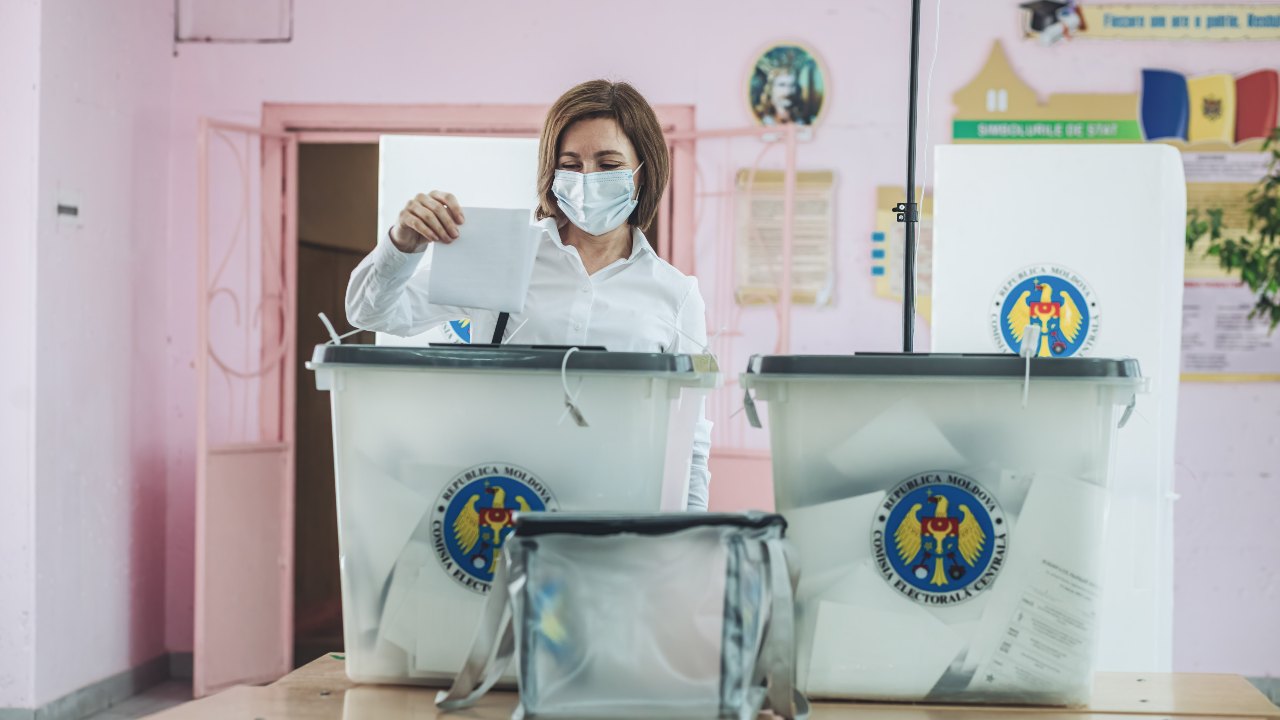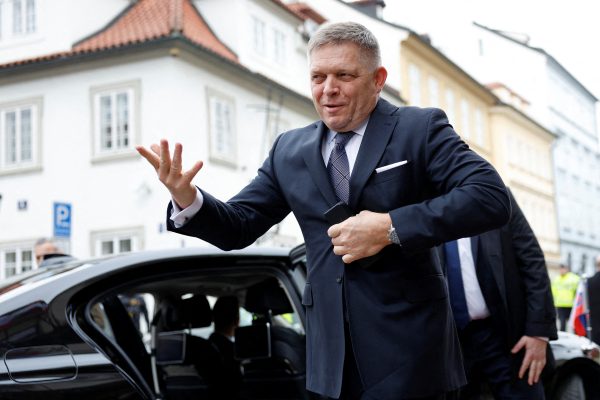The Moldovan election result consolidated control for the liberals who also won the presidency last year. Russia, which occupies the breakaway republic of Transnistria in the east of the country, invested heavily in swaying the election in Moldova, home of the first of the Twitter Revolutions in 2009 that consumed Russian military planners for much of the past decade.
But the vote on July 11 showed its ambition exceeded its reach. The liberal ousting of the Bloc of Communists and Socialists (BECS) yesterday (by a hugely convincing 53% to 27%, and a projected 63 seats in the 101-seat Moldovan parliament) represents a nadir for Russian influence, and those Russian media targeting the country with a full-on campaign for the BECS. Despite the effort, Russia’s media made a profound strategic mistake by offering minimal Moldovan/Romanian-language content, ensuring that Kremlin-aligned media floundered beyond the Russian-speaking occupied territory.
Since independence, Moldovan political fortunes have swung between Russia-leaning leftist coalitions and Western-leaning liberal coalitions, though Moldovan politicians normally reject “pro-Russia” or “pro-EU” labels. Parliament’s incumbent coalition took shape in the early 2010s when the Party of Socialists of the Republic of Moldova (PSRM), led by Igor Dodon, replaced the Communists as the main leftist party. Dodon won the presidency in 2016 and led a combative administration, courting Russia, refusing to formally approve ministers, receiving an official condemnation from the European Court of Human Rights, and facing (an admittedly standard-issue) accusation of treason from the liberal Party of Action and Solidarity (PAS or PDS from the Russian).
But in 2019, PAS formed a coalition with PSRM that made PAS leader Maia Sandu prime minister. The alliance proved untenable and failed within six months, after which Sandu began her own run for president. In 2020, she won by 16 points. Yet PSRM and the communists still controlled parliament, and gave Sandu little room to operate. Under the Moldovan constitution, two unsuccessful nominations for prime minister result in snap elections, so Sandu twice nominated an unpalatable candidate, both times rejected by the PSRM bloc. The Socialists responded by declaring a national emergency in April, which the Supreme Court ultimately declared unconstitutional, allowing the election to proceed. Yesterday, PAS outperformed even the most optimistic polls.
Dodon has been a close ally of Russia, and Russian media has lent its support to his campaign. The website of the Moldovan edition of Argumenti i Fakti, once the world’s leading newspaper and now owned by the City of Moscow, plastered BECS ads across its website, alongside pieces that read like party press releases: A court decision closing 29 polling stations in Transnistria “testifies to the desperation of the PDS,” while funding from NGOs amounts to “illegal financing of the PDS,” since “the Communist Party and the Socialist Party are the only forces in the country that have remained independent, as well as the only truly pro-Moldovan parties.” Komsomolskaya Pravda, Russia’s current leading newspaper and a staunch Kremlin ally, also boasts a Moldovan edition with reserved ad slots for the BECS. Less propagandistic than Argumenti i Fakti, Komsomolskaya Pravda still casts Sandu as surrounded by criminals, an associate herself to “the theft of the century,” while her party apparatchiks are terrorizing innocent villagers.
But these articles, among 40 others published on Dodon or Sandu by the two outlets this week, have fallen flat, driving only 413 likes, shares, or comments across Twitter, ok.ru, and VK. Language is perhaps most to blame: while 80% of Moldovans speak Moldovan/Romanian, Komsomolskaya Pravda and Argumenti i Fakti publish exclusively in Russian. Sputnik maintains a Moldovan site with accounts on Telegram, Facebook, YouTube, and Instagram, but has failed to amass more than a few thousand followers on any.
With slim prospects for a meaningful impact on the outcome, Russian and Russian-aligned media took to discrediting the results before the votes were cast. Argumenti i Fakti amplified Dodon’s call for nonstop protests in reaction to how Sandu has “so grossly violated the right of citizens to vote” as well as his declaration that “PDS has already deliberately created preconditions for non-recognition of elections.”
Nonetheless, his defeat was so crushing that Dodon conceded on July 12. Komsomolskaya Pravda first blamed the diaspora then blamed “spoiler parties” that “selflessly and gracelessly sunk BECS.” RTR Moldova, a branch of Russia’s main state broadcaster, VGTRK, warned of upcoming legal attacks on Moldova’s Russian minority. With Russian forces approaching their third decade on sovereign Moldovan soil, Russia’s destabilization strategy is familiar territory.




